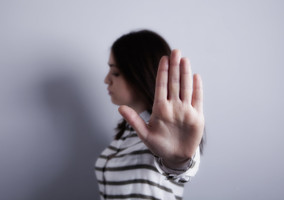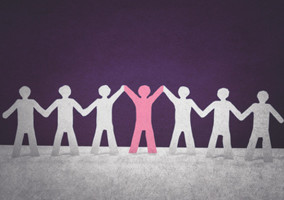Power and powerlessness is right at the heart of the charity sector, with those who have power and wealth helping those without. Don’t get me wrong, helping people is a good thing, but we must always be vigilant against the misuse and abuse of power. Most of us will be familiar with the enormous disconnect between the comfortably-off, middle-class leadership of most of our organisations and our client groups living difficult and precarious lives.
The fundraising and safeguarding scandals of recent years, along with diminishing support for the welfare state due to government funding cuts, have rocked our sector. The ones who suffer the most, of course, are the most disadvantaged. I would argue that if beneficiaries had more power, they would hold us to account and ensure that we had the right focus. We need to empower those who we serve and get better at sharing power throughout communities.
The power imbalance between the haves and the have-nots extends to the world of fundraising, where the very fact that charity staff have to ask for money makes it incredibly difficult for them to act as if they are equals to the donor.
To compound this, it is mainly older men who are the decision-makers about donations and mainly younger women who are the fundraisers. Add in gala dinners and awards ceremonies, fuelled by alcohol and bragging rights, and the ingredients for people to misuse their power are all there.
This is made worse by our sector not always being as good as it could be at managing and supporting its people.
For me, this is personal. As a fundraiser, I have had to navigate the experience of wealthy, older men, with whom I am trying to build a professional relationship, asking me if I am married and then having to assess whether to disclose that my partner is female and that it was she that put the wedding ring on my finger at our civil partnership ceremony, or to lie. With colleagues, I have had the experience of not feeling I could talk about my partner and therefore not really talking much about my social life.
And this extends well beyond my own personal experiences as a lesbian. I have seen abuses of power, and prejudice of all types in the sector.
In one of my first fundraising roles at a UK charity, I heard an extremely offensive racist slur made during a supposed tribute about a black colleague at his leaving do. There was a collective intake of breath among the 99 per cent white audience and no one, including me, did anything. To this day I am ashamed of my silence and complicity in not calling out this hurtful bigotry.
That was over 20 years ago and, in the intervening years, I have heard countless stories of racism, homophobia, bullying and misogyny throughout the voluntary sector. It is hard to believe. We’re supposed to be the good guys, right? We’re supposed to be getting better, right?
People often tell me about experiences that they have had within charities; being excluded, bullied, and sexually harassed. It is as extraordinary as it is shameful. People have told me about keeping their mental health diagnosis a secret for fear of being discriminated against. People of colour have told me countless times of being the only one in a room of hundreds and feeling isolated and intimidated.
Someone told me they took early retirement rather than continuing to endure age and disability discrimination... at a disability charity.
I am honoured that people trust me with their stories, but I am also devastated to hear about these experiences and determined to do something about it. My vision is that eventually we will have a social justice and voluntary sector that we can all be proud of, where power is no longer held in the hands of the few and where stories such as those shared above, truly become things of the past.
Related articles











